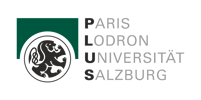
Profile of the Division Organizational Communication
The Division’s teaching, research and third mission is interested in the conditions and consequences of organizational communication in a digitalized society. From an interdisciplinary perspective, we challenge common understandings of communication, media and responsibility in different application areas of organizational communication – such as public relations, branding, employee or management communication.
Organization and communication
Firstly, we consider communication more than a strategic means to achieve organizational goals. We acknowledge the constitutive role of communication for the emergence and continuity of organizations as much as the impact of public communication on organizations. Considering these “unplanned” forms of communication in and about organizations allows for better understanding the challenges and contradictions that practice and research are regularly confronted to.
Organization and media
Secondly, we acknowledge that the digitalization of organizational communication goes far beyond new media channels. More broadly, digitalization implies a far-reaching change of guiding professional values and ways of working – e.g., a shift from long-term consistency to flexible feedback responsivity, or from cross-departmental integration to agile teamwork. In addition, it is important for us to pay equal attention to the technological side of digital organizational communication – after all, key concepts such as attention, reputation, and relationships are driven as much by algorithms as they are by content.
Organization and responsibility
Thirdly, we engage with the puzzle that established principles of responsible organizational communication increasingly turn ambiguous in the wake of digitalization. The principle of transparency, for example, is countered by justified concerns about surveillance, while the principle of inclusion and participation is countered by justified objections about exploitation and instrumentalization. Taking these concerns seriously and finding socially responsible answers to them presents another central aim of our division.

